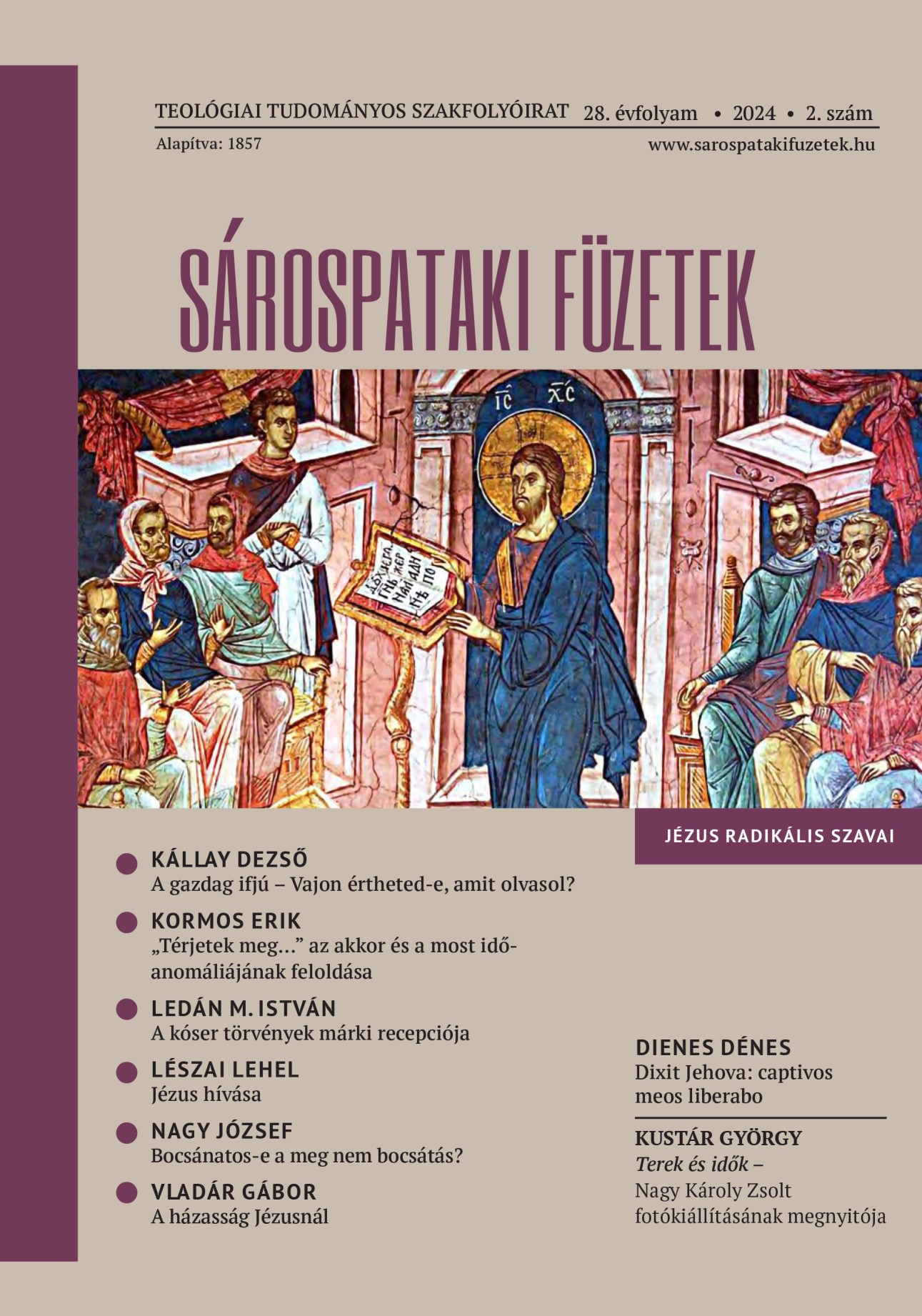Can you Possibly Understand What you Read?
DOI:
https://doi.org/10.59914/SF.28.2024.2.5Keywords:
greadiness, rich young ruler, Kingdom of God, perfection, compensationAbstract
In terms of genre, the story of the rich young man
is regarded as the story of a failed vocation. The
focus of the story is, therefore, on the immediate,
total and final renunciation of wealth, which becomes the condition for following Jesus and thus
for participating in eternal life, not only in this
specific case but also in general. This approach
leads to an unresolved tension in the explanation.
A review of the history of interpretation shows
that Jesus’ statement is intolerable to people of
any age. It is, therefore, more appropriate to
regard the text as a teaching discourse (Lehrgespräch). In this case, the story of the rich man is
an isolated case of man’s inability to pay the price
that the divine will demands of him for eternal
life. In the teaching of the disciples (Jüngerbelehrung), Jesus explains that this way is closed to
man: it is impossible to be saved by one’s own
effort, but all things are possible for God. In light
of this, we must separate the harsh command to
the young man from the idea of discipleship. An
immediate, total and final renunciation of wealth
is not necessary for following Jesus. It is a necessary condition for the acquisition of heavenly
treasures. But if the young man has renounced
everything, then in principle, the opportunity
to follow Jesus is open to him. The story of the
rich young man does not set an unattainable requirement for the condition of discipleship. The
last passage of the pericope shows that eternal life
can only be attained by following Jesus, and Jesus demands no more than that this following be
possible in the situation of life.
Downloads
Published
Conference Proceedings Volume
Section
Categories
License
Copyright (c) 2024 Dezső Kállay (Szerző)

This work is licensed under a Creative Commons Attribution 4.0 International License.
The author(s) reserve the copyright of their work.
The Sárospatak Notebooks does not restrict the rights of authors to place their manuscripts or manuscript versions on preprint servers or other hosting. This applies generally to the following formats.
- Submitted Version
- Accepted Version (Author Accepted Manuscript)
- Published Version (Version of Record)









